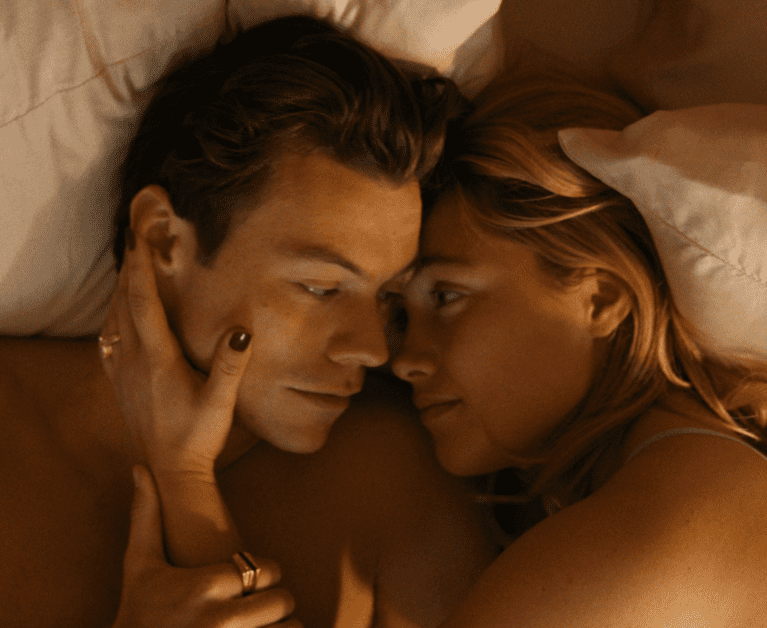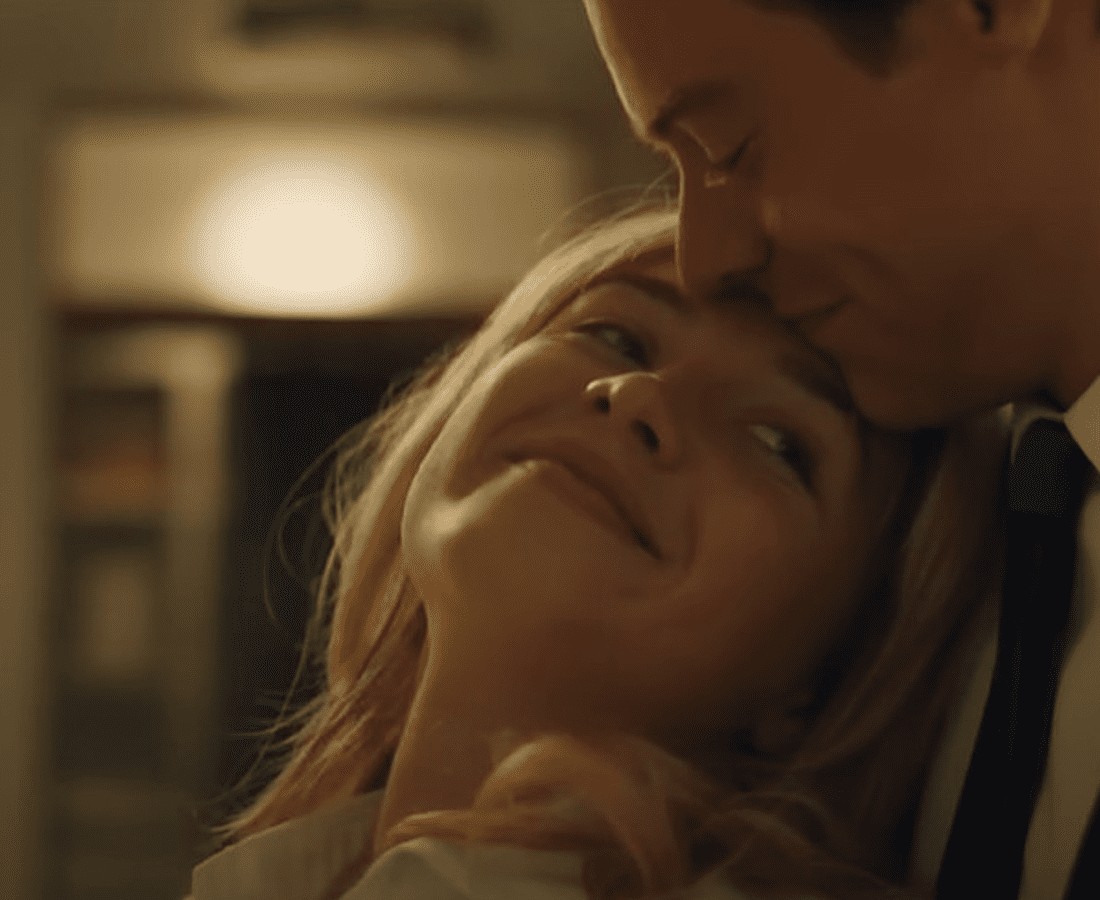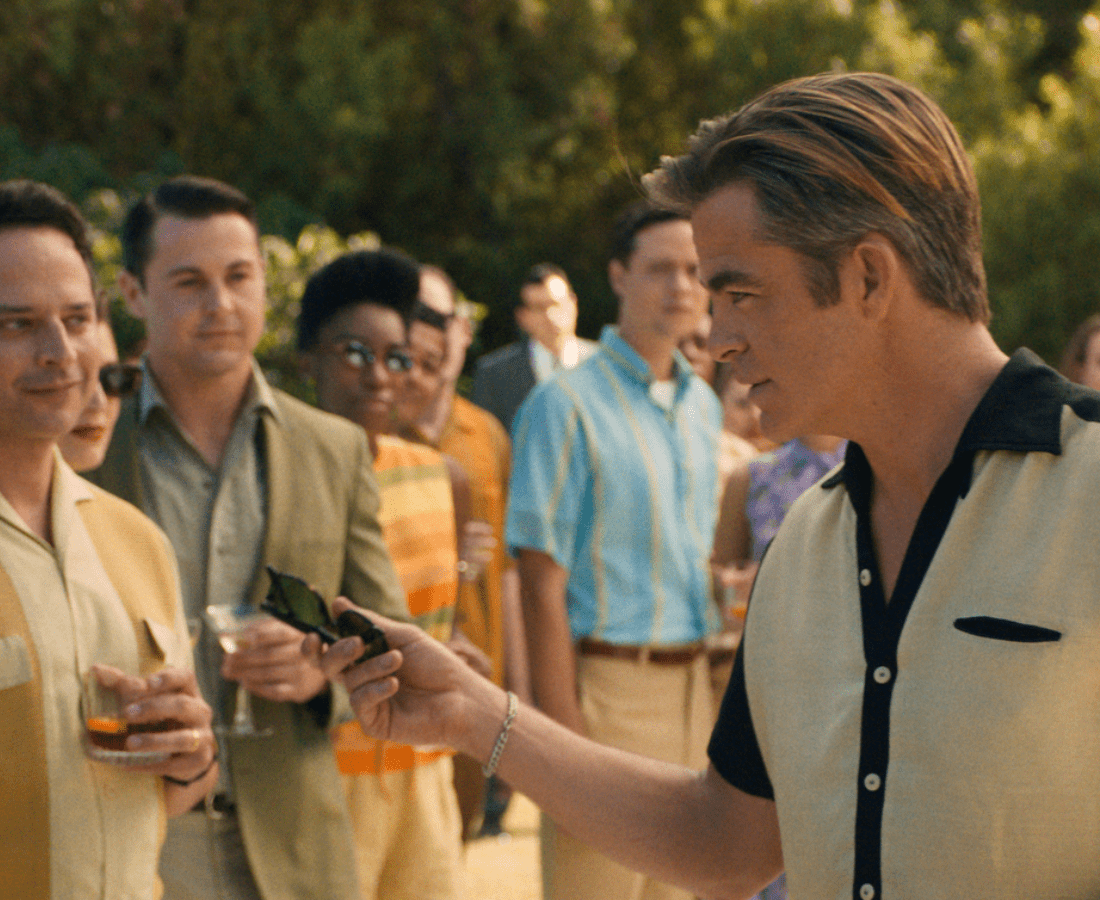Film Review: Olivia Wilde’s Don’t Worry Darling is an Idyllic Illusion of Patriarchal Perfection

PUBLISHED September 24th, 2022 10:00 am | UPDATED October 10th, 2022 11:18 am
There’s little doubt that you’ve heard of this movie. Between ‘Miss Flo’, Spitgate, and the allegations of cheating on the director’s end, talk about the film has been mired in an endless stream of drama that’ll have you finish your popcorn before even reaching the theatre. Not much has been said about the film itself however, so if you’re curious about the project that sparked off all the juicy gossip, here’s what we have to say.
Don’t Worry Darling centres around the life of Alice and Jack Chambers, played by Florence Pugh and Harry Styles. Working for the enigmatic Victory Project and living in the community it runs, Jack drives off in the morning, almost in a choreographed routine with the other husbands, as Alice and the other wives wave them off lovingly from their sunny manicured lawns.

She spends the day tending to their gorgeous home, chatting and shopping with her best friend Bunny (Olivia Wilde). When evening comes, Jack comes back and uh, shall we say, pleases her right on the dining table – food be damned. It’s right out of the 1950s daydream that we see in old movies, except even better as Jack and Alice’s marriage comes with tender love and woman-centred sex.
The setting is particularly interesting, given the rise of ‘I don’t want to work, I want to be a 1950s housewife’ jokes, due to the increasingly competitive and bleak economy today. A handsome husband who gives in to your every desire, and staying home to take care of a stunning house that you actually own is exactly many female netizens wish for. Moreover, as we are given very little exposition, the film toys with our curiosity – what exactly is the Victory Project?

Beyond soirées and catty gossip (like the one surrounding its discourse), the peace of the utopian community gets shaken up when Margaret, one of the wives played by KiKi Layne, breaks the one rule – no women at the Victory headquarters. She returns with warnings about being lied to by the leader, Frank (played by Chris Pine). Margaret becomes ostracised and treated like she’s lost her mind by everyone, including Alice.
That is, until Alice herself steps out after seeing a plane crash, and witnesses something that changes her mind about the Victory Project. Fighting her own doubts, the hand-waves by everyone around her and even her own husband brushing her off as “hysterical”, Alice is constantly gaslighted, putting her foot down only when Frank teases her by revealing that she isn’t wrong.

Florence Pugh’s acting is nothing short of phenomenal, and she balances Alice’s character with her additional role as audience surrogate wonderfully. In comparison, Styles comes off a bit one-dimensional, though this does add to the perfect husband that Jack appears to be.
The cinematography is a treat, and adds to this sense of peace that’s not to be disturbed, thus creating a great contrast with the moments when Margaret and Alice step out of line. The pacing was also fantastic, with the two-hour runtime zipping by as you’re sucked into the mysteries unfolding. The horror elements, however, do feel out of place in certain scenes.

Wilde does an excellent job of replicating the conditional friendliness of a cult, with the sunshine attitudes dropping whenever someone questions the leader or acts out of turn. Community members (mainly the men) hurl thought-terminating clichés to explain any inconsistencies, while their wives simply sip their cocktails and look away from the ‘crazy’ woman spiralling, mirroring how mental illness was treated in women during the 1950s.
The tentacular themes of patriarchy unfold slowly throughout the story, becoming more sinister as it becomes clear that the mystery of the town is not kept just by Frank, but by all the men. The film even touches, albeit lightly, on the right-wing calls to return to patriarchy by disenfranchised men, who were taught to be the providers yet find themselves too disempowered to do so. It’s a true shame that they did not delve deeper, given Wilde’s comparison of Frank to right-wing commentator Jordan Peterson.

There is a twist – and it’s a big one, which makes further explanation quite tricky without spoiling too much. What can be said however, is that the ending was rather underwhelming. Most of the run-time is spent in a wild chase with viewers wondering what’s going on, yet once we get the answer, the movie’s over. More exposition would have been greatly appreciated, as we left the cinema with too many unanswered questions and missing character motivations to really feel satisfied.
If your main desire to watch this movie is to see some split second of hostility between Wilde, Styles, and Pugh, you won’t find any. Instead, you’ll find a beautifully shot movie exploring the dangers of patriarchal control regardless of how gentle or beneficial, and how love simply does not excuse it.
Top image courtesy of Warner Bros.



